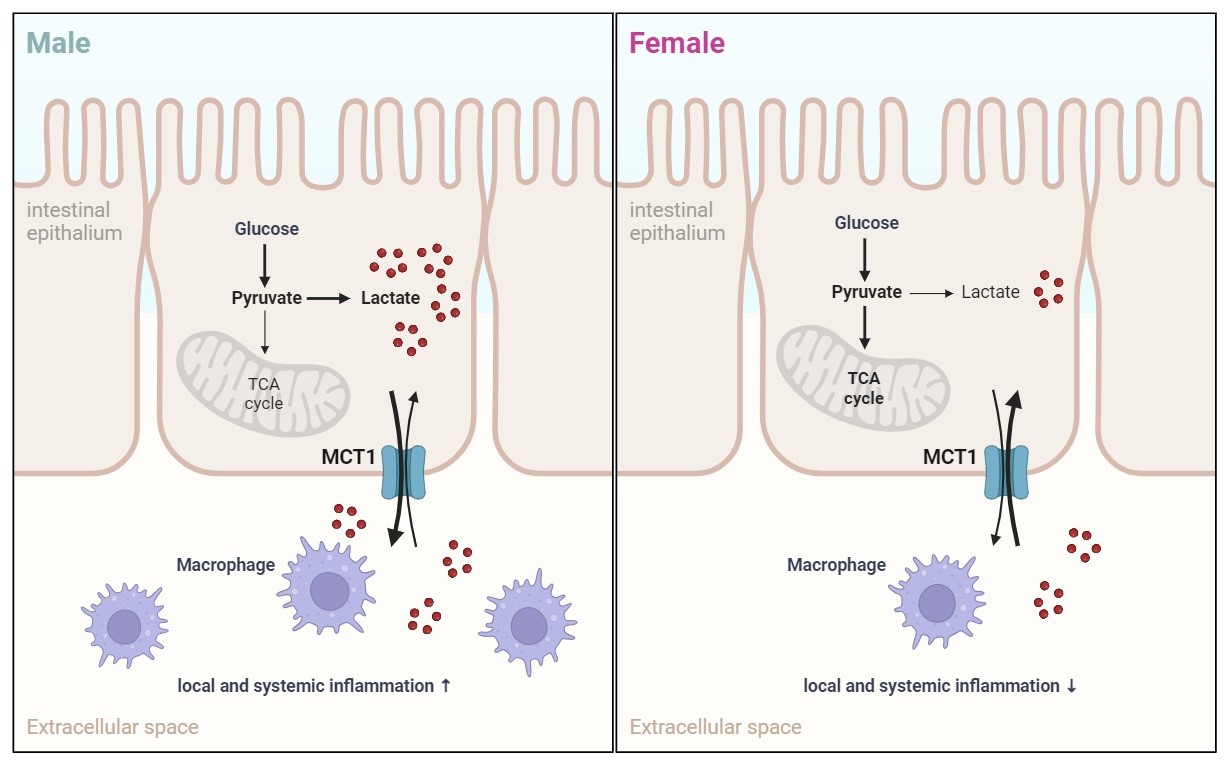
Recently, a team of researchers led by Prof. CHEN Yan from Shanghai Institute of Nutrition and Health (SINH) of the Chinese Academy of Sciences revealed for the first time that intestinal monocarboxylate transporter 1 (MCT1) can regulate glucose homeostasis and energy metabolism in a sex-dimorphic pattern. The study was published online in Life Metabolism.
As the concept of lactate shuttling between producers and consumers being gradually recognized, lactate has recently been regarded as an important signaling molecule and driver of many biochemical and physiological processes. MCT1, encoded by Slc16a1, is a member of solute carrier family 16 and plays a crucial role in the transportation of lactate, pyruvate, ketone bodies, and short-chain fatty acids. It is widely distributed in almost all human tissues. Its functions in different tissues highlight MCT1 as an important player in numerous physiological processes and diseases.
Intestine is the most important organ for nutrient digestion and absorption, and is considered to be the largest immune organ. However, the role of intestinal MCT1 in regulating lactate transport and modulating metabolism of the body is unclear.
In this study, the researchers generated a mouse model with specific deletion of Slc16a1 in intestinal epithelium and investigated the functions of MCT1 in the gut.
When fed with a high-fat diet, Slc16a1-deleted male mice had improvement in glucose tolerance and insulin sensitivity, while Slc16a1-deleted female mice only had increased adiposity. Deficiency of intestinal MCT1 in male mice was associated with downregulation of pro-inflammatory pathways, together with decreased circulating levels of inflammatory cytokines. Intestinal deletion of Slc16a1 in male mice reduced interstitial lactate level in intestine. Lactate had a stimulatory effect on pro-inflammatory macrophages in vitro. The number of intestinal macrophages was reduced in Slc16a1-deleted male mice in vivo.
In addition, the researchers found that treatment with sex hormone estrogen could abolish the difference of glucose homeostasis between Slc16a1-deleted and wild type male mice and produce an impact on lactate efflux in the intestines. Deficiency of intestinal MCT1 blocked transport of lactate and short chain fatty acids from the intestine to the portal vein. The effect of Slc16a1 deletion on glucose homeostasis in male mice was partially mediated by alterations in gut microbiota.
This work revealed that intestinal MCT1 regulates metabolism of the body in a sex-dependent manner. These findings corroborated the concept that metabolic homeostasis is differently regulated in two sexes.

MCT1 regulates metabolic homeostasis of mouse in a sex-dimorphic pattern. (Image by Prof. CHEN’s group)

86-10-68597521 (day)
86-10-68597289 (night)

52 Sanlihe Rd., Xicheng District,
Beijing, China (100864)

